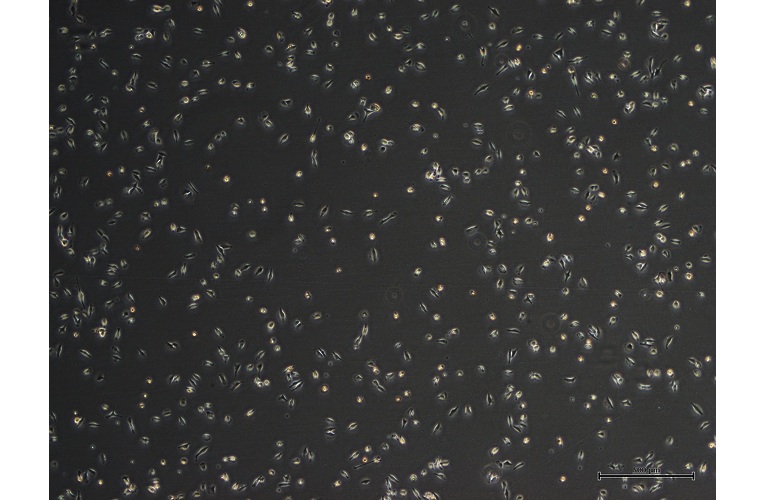Cat. #154648
TCL1-002 cell line
Cat. #: 154648
Sub-type: Continuous
Unit size: 1x10^6 cells / vial
Availability: 10-12 weeks
Organism: Mouse
Tissue: Lymphatic Tissue
Disease: Cancer
Model: Cancer Model
£575.00
This fee is applicable only for non-profit organisations. If you are a for-profit organisation or a researcher working on commercially-sponsored academic research, you will need to contact our licensing team for a commercial use license.
Contributor
Inventor: Dimitar Efremov
Institute: International Centre For Genetic Engineering And Biotechnology (ICGEB)
Tool Details
*FOR RESEARCH USE ONLY (for other uses, please contact the licensing team)
- Name: TCL1-002 cell line
- Cancer: Blood cancer
- Cancers detailed: Chronic lymphocytic leukemia;CLL
- Research fields: Apoptosis and autophagy;Cancer;Cell signaling and signal transduction
- Tool sub type: Continuous
- Parental cell: E-TCL1
- Organism: Mouse
- Tissue: Lymphatic Tissue
- Disease: Cancer
- Model: Cancer Model
- Conditional: No
- Description: The proliferation and survival of chronic lymphocytic leukemia (CLL) B-cells is regulated by intracellular signaling pathways which are activated by various stimuli such as antigenic stimuli propagaged through the B-cell receptor (BCR). For this reason inhibition of antigen-dependent BCR signalling can be considered a promising therapeutic approach in CLL. Some studies have shown that sustained engagement of the BCR induces a powerful antiapoptotic program in CLL cells. Transduction of the prosurvival BCR signal was shown to involve the recruitment and activation of several kinases, including Syk. Increased basal activity of Syk kinase has been described in CLL and several other B-cell malignancies and shown to contribute to the increased apoptosis resistance of the malignant lymphocytes. Interestingly, the antiapoptotic program in CLL cells caused by sustained BCR engagement can be completely abrogated with selective inhibition of Syk kinase, suggesting that the Syk kinase could be a potential target for therapeutic intervention. This E-TCL1-002 cell line (a transgenic mouse model of chronic lymphocytic leukemia) strongly expresses Syk kinase.
- Production details: Established from an EÄÂ??-TCL1 transgenic colony which had a B6/C3H background. Adoptive-transfer experiments with this leukemia was done in B6/C3H F1 recipients (6- to 8-week-old female mice). For adoptive transfer, 1.5 x 10^7 TCL1 leukemia cells were thawed, resuspended in 500 ÄÂ??L of phosphate-buffered saline (PBS), and injected intraperitoneally into the syngeneic recipients. Mice were followed for leukemia development and were euthanized when they developed signs and symptoms of...
Target Details
- Target: e.g. chronic lymphocytic leukemia
Applications
- Application notes: TCL1-002 murine leukaemia cells are splenic B cells which express high levels of phosphorylated Syk. They have low viability in vitro.
Handling
- Format: Frozen
- Growth medium: Must be propagated in vivo.
- Unit size: 1x10^6 cells / vial
- Shipping conditions: Dry ice
References
- The Syk inhibitor fostamatinib disodium (R788) inhibits tumor growth in the E-TCL1 transgenic mouse model of CLL by blocking antigen-dependent B-cell receptor signalling.




